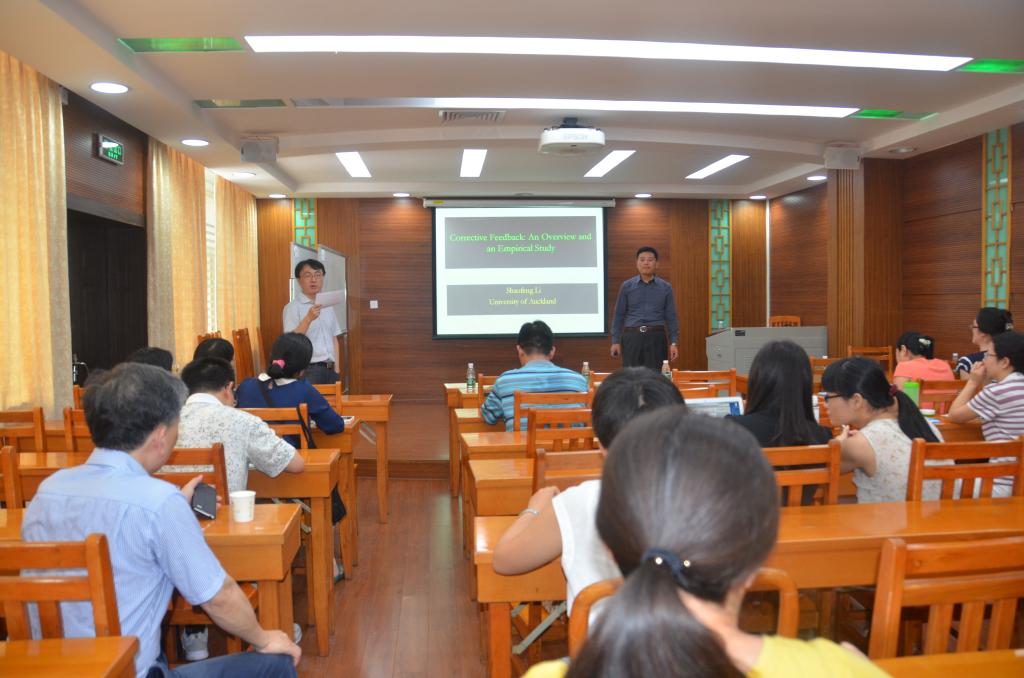On the afternoon of May 25th 2015, Dr. Li Shaofeng from the University of Auckland was invited to deliver the lecture “Corrective Feedback in Second Language Acquisition” at the National Key Research Center for Linguistics and Applied Linguistics (CLAL). The lecture was hosted by Prof. Wei Ren, and received warm welcom from teachers and students at CLAL and the Faculty of English Language and Culture.
Dr. Li gave an overview of corrective feedback in second language acquisition, and introduced the latest empirical research on corrective feedback. Starting with the different definitions of corrective feedback, Dr. Li went on to discuss the related theoretical issues. The first theoretical debate centered around the importance of positive evidence versus negative evidence in second language acquisition. The next theoretical divergence concerned with the necessity of implicit knowledge and explicit knowledge. The third argument was how to promote learners’ noticing of corrective feedback in language communications. Due to the different lines of theoretical research, definitions of corrective feedback also varied. The pedagogical value of corrective feedback should never be neglected, because learners were happy to receive corrective feedback and teachers adopted various forms of corrective feedback frequently in classrooms. Later, Dr. Li embarked on introducing a latest empirical research entitled “The Effects of the Timing of Corrective Feedback on the Acquisition of a New Linguistic Structure”. The study aimed to compare the efficacy of immediate corrective feedback with that of delayed corrective feedback on the acquisition of implicit and explicit knowledge. Results suggested a positive effect for immediate corrective feedback in classrooms, which was due to the opportunities after corrective feedback to practice the declarative knowledge, and the following output-driven deep processing of corrective feedback.
Although the discussion lasted only one hour and a half, all the participants, who were greatly impressed, interacted actively with Dr. Li. The discussion deepened their understanding of issues relating to corrective feedback in second language acquisition.

